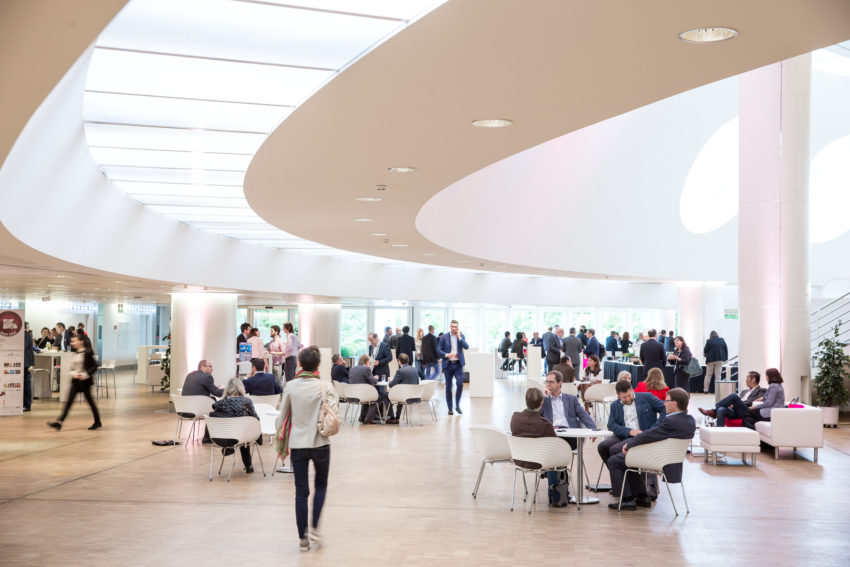Research surrounding HIV and AIDS is continually evolving, and with events like the 17th European AIDS Conference, which took place at Congress Centre Basel (CCB), attendees had the chance to discuss and learn more about the latest scientific developments related to a disease without a cure. As Professor Manuel Battegay, the local conference co-chair says, it’s events like these that help scientists translate developments into daily clinical practice—in addition to placing Basel at the top of the list as an ideal congress destination.
Basel, with its stable economy, government and society, is one of Switzerland’s prime locations for association conferences. You may have heard of a few of the more internationally recognized events like Baselworld, the premier trendsetting show for the watch and jewellery industry, and Art Basel, one of the world’s leading modern and contemporary art fairs. Basel is a truly international city that’s easy to navigate, since most attractions can be reached by foot or by public transport—which is rapid, punctual, and even connects countries, crossing the border into Germany and France. The city is also home to a number of innovative companies, an abundance of green space (within the attractive city centre), and Switzerland’s oldest university.
Established in 1991, the European AIDS Clinical Society (EACS) is a not-for-profit that brings together scientists from across Europe to facilitate an exchange of the latest information regarding clinical aspects of the disease. All members of the Governing Board and Regional Representatives work entirely pro bono. The European AIDS Conference, EACS’s flagship event held every two years, aims to create not only a stimulating scientific programme, but also an innovative space where attendees can meet and discuss discoveries with fellow clinicians.
In Basel, this type of space can easily be created. “It’s an open-minded and liberal city with a strong humanist tradition, thanks to its roots going back to the humanist age,” explains Manuel Battegay. “As congress organizers and participants, we are very pleased that Basel was selected as host city. The Swiss HIV Cohort Study, which has contributed to the understanding of the disease, helping to improve the treatment and the care for 30 years, is playing a decisive role in this regard. A book titled ‘AIDS in Basel – From dying of AIDS to living with HIV’ was also recently published – a clear testament of the city having had a huge impact on the treatment of the disease.”
In addition to the personal engagement of leading Swiss researchers as Manuel Battegay, two other key players made the conference possible: the city of Basel and the CCB. “The whole organizational process gave us the impression that the conference will be integrated in an atmosphere which is not only supportive of the congress itself, but also of the people infected with HIV or suffering from AIDS,” Battegay says. “We did not only receive financial support, but also organizational help from the Canton of Basel-Stadt and its Government, which has clearly made a difference to us. All parties involved are very dedicated, and this has been apparent every step of the way.”
In Eastern Europe and Africa, there are still a lot of AIDS-related cases that need solving, despite the excellent therapies that currently exist. In order to find solutions, clinicians, scientists and experts from the public health domain must exchange their experiences and knowledge, working together to uncover life-changing breakthroughs. This is the kind of legacy the Congress aims to leave. “One of our goals is to increase the number of patients we can reach considerably—and get a treatment for those in Europe and beyond,” Battegay says. “We hope for a sustainable impact of the congress, especially in Europe.”
More info on Switzerland as a conference destination: myriam.winnepenninckx@switzerland.com / www.MySwitzerland.com/meetings
This article was written by Boardroom Chief Editor Remi Deve. The right to use this article, in full or in parts, has to be granted by the Publisher.
